WordPress CMS vs. Other CMS: Which Is Right for You?
Introduction
Selecting the right Content Management System (CMS) is crucial for the success of your website. In this comprehensive guide, we’ll compare WordPress CMS, the market leader, with other CMS options. By the end, you’ll know which one aligns best with your web development goals.
A Content Management System is the backbone of your website, the tool that enables you to create, manage, and publish content without the need for in-depth coding knowledge. It’s the engine that powers your online presence, making it an integral part of your digital journey.
Whether you’re a seasoned web developer or just starting on your webmaster adventure, the choice of CMS is paramount. It can be the key to unlocking your website’s full potential or the source of endless frustrations. Your CMS can make the process of content creation a breeze or a constant struggle.
The purpose of this guide is to shed light on the complexities of this decision. We’ll take a close look at the leading CMS in the market – WordPress – and compare it to other popular options. By the end of this journey, you’ll be well-equipped to make an informed choice.
While this guide delves into technical aspects, it’s not just for the tech-savvy. It’s for entrepreneurs, bloggers, artists, and anyone who wants to have a presence on the internet. It’s for those who see the potential of the online world and want to harness it. It’s for those who understand that in today’s digital age, the right CMS can be the difference between a flourishing online presence and a missed opportunity.
So, let’s embark on this journey together, exploring the world of Content Management Systems, understanding why WordPress is the reigning king, and discovering the alternatives that might better suit your unique needs. Your website’s success story begins here.

What is a CMS?
In the intricate realm of website development, “CMS” is a term you’ll frequently encounter. But what exactly is a Content Management System, and why is it essential for your digital journey? Let’s break it down.
Defining CMS
A Content Management System, or CMS, is a software application designed to facilitate the creation, management, and publication of digital content on the web. It acts as the backbone of your website, providing a user-friendly interface that allows individuals with varying levels of technical expertise to build, organize, and maintain their online platforms.
CMS platforms are particularly advantageous because they eliminate the need for in-depth coding or programming skills. Instead, they offer intuitive, user-friendly tools that make the process of content creation and website management accessible to a broader audience.
Key Features of a CMS
- Content Creation: CMS platforms enable you to create and format content effortlessly. They often include text editors similar to word processors, making it simple to add and edit text, images, videos, and other multimedia elements.
- Content Organization: CMS systems provide tools to organize your content into a structured hierarchy. This helps in managing large websites with multiple pages or sections efficiently.
- User Management: Most CMSs allow you to assign roles and permissions to different users. This feature is especially beneficial for collaborative websites or e-commerce platforms.
- Version Control: CMSs typically have version control features, ensuring that you can track changes, revert to previous versions, and collaborate with others without the risk of data loss.
- Themes and Templates: CMS platforms offer a wide range of pre-designed themes and templates that can be customized to match your brand’s identity. This simplifies the process of designing and redesigning your website.
- Plugins and Extensions: CMSs often support plugins or extensions that expand their functionality. These plugins can add features like contact forms, e-commerce capabilities, SEO tools, and more.
- SEO-Friendly: Many CMSs are optimized for search engines, making it easier to implement on-page SEO techniques, such as meta tags and friendly URLs.
- Scalability: CMSs are designed to accommodate growth. Whether you’re running a personal blog or a corporate website, these systems can adapt to your evolving needs.
Why a CMS Matters
The choice of CMS is pivotal in your website development journey. It determines not only how easy or complex managing your online presence will be but also how effectively you can engage with your audience. A CMS empowers you to focus on creating content and fostering your digital community without the hassle of worrying about the technical intricacies of web development.
In summary, a Content Management System is your digital ally, your creative canvas, and your gateway to the online world. It is the toolkit that transforms your web development dreams into a tangible, user-friendly reality. In the following sections, we will explore one of the most popular CMS platforms, WordPress, and compare it to other options to help you make an informed decision about which one is right for you.
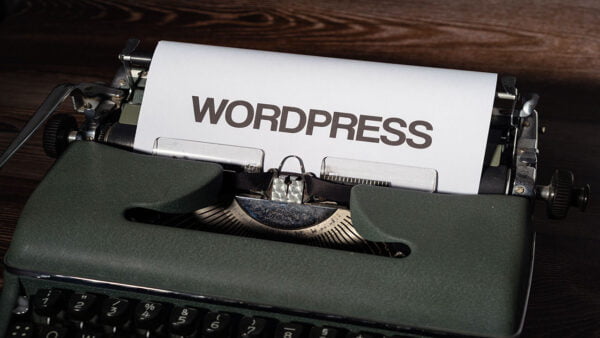
WordPress CMS: The Market Leader
When it comes to Content Management Systems (CMS), WordPress reigns supreme. With an impressive track record and a vast user base, it has solidified its status as the market leader for good reason. In this section, we will delve into what makes WordPress stand out and why it might be the perfect choice for your website.
User-Friendly Interface
One of WordPress’s standout features is its user-friendly interface. Whether you’re a seasoned developer or a novice, you’ll find it easy to navigate. The dashboard is intuitive, and content creation is as simple as using a word processor. This accessibility means that anyone can start building a website without extensive technical knowledge.
Extensive Plugin Library
WordPress’s plugin library is a treasure trove for website owners. With over 58,000 plugins available, you can enhance your site’s functionality in countless ways. From SEO optimization to e-commerce integration, there’s a plugin for nearly every need. This robust ecosystem allows you to customize your website without advanced coding.
Supportive Community
WordPress boasts a dedicated and extensive community of users, developers, and enthusiasts. You can find answers to your questions in forums, access comprehensive documentation, and even seek professional support if required. This vibrant community ensures that you’re never alone on your WordPress journey.
SEO-Friendly
WordPress is inherently optimized for search engines. It generates clean, well-structured code and provides a range of SEO plugins to help improve your website’s search engine rankings. If you’re serious about attracting organic traffic, WordPress is a smart choice.
Themes and Templates
WordPress offers a wide selection of themes and templates that cater to various industries and styles. These themes provide a solid foundation for your website’s design, and you can further customize them to align with your brand. This flexibility makes WordPress suitable for blogs, portfolios, e-commerce sites, and more.
Constant Updates
To maintain security and performance, WordPress regularly releases updates. This commitment to improvement ensures that your website stays secure and up-to-date with the latest web technologies. However, it’s crucial to stay on top of these updates to benefit from these enhancements fully.
E-Commerce Capabilities
If you’re planning to run an online store, WordPress has you covered with its e-commerce plugins, most notably WooCommerce. This powerful tool can transform your website into a fully functioning online shop, complete with inventory management, payment processing, and more.
Considerations
While WordPress is a stellar choice for many, it’s essential to consider its potential drawbacks. Its popularity makes it a prime target for cyber threats, so robust security measures are necessary. Additionally, as your website grows, you may need to invest in more substantial hosting to ensure optimal performance.
WordPress’s widespread adoption, user-friendly interface, extensive support, and customization options make it the go-to choice for countless website owners. It’s a versatile platform that can cater to diverse needs, and its vast plugin library offers an array of features without the need for complex coding. If these qualities align with your web development goals, WordPress might be the ideal CMS for you.

Alternatives to WordPress
While WordPress is the reigning champion in the world of Content Management Systems (CMS), it’s not the only player on the field. Depending on your specific needs and preferences, you might find that an alternative CMS is a better fit for your website. In this section, we’ll explore some of the notable alternatives to WordPress:
1. Joomla
Strengths:
- Joomla is known for its flexibility and extensibility, making it a solid choice for developers and businesses.
- It offers a robust user management system, making it suitable for creating community-driven websites and intranets.
- The platform’s multilingual capabilities are impressive, which is perfect for international websites.
Considerations:
- Joomla has a steeper learning curve compared to WordPress, and beginners may find it more challenging to use.
- The plugin and template library is smaller than WordPress, which may limit customization options.
2. Drupal
Strengths:
- Drupal is a highly customizable and powerful CMS that excels in handling complex and content-heavy websites.
- It offers strong security features, making it a popular choice for government and enterprise websites.
- Drupal has an active community that contributes to its ongoing development and support.
Considerations:
- Like Joomla, Drupal can be complex for beginners, and it may require a more significant learning curve.
- The extensive customization capabilities may lead to increased development costs and time.
3. Wix
Strengths:
- Wix is an all-in-one website builder that is extremely user-friendly, making it ideal for beginners.
- It offers a drag-and-drop interface and a wide variety of templates to choose from.
- Wix includes hosting and domain registration in its packages, simplifying the website setup process.
Considerations:
- Wix’s simplicity comes at the cost of flexibility; it may not be the best choice for complex or highly customized websites.
- Advanced users may find the lack of in-depth coding options limiting.
4. Squarespace
Strengths:
- Squarespace is a user-friendly website builder with a focus on elegant and artistic design.
- It offers a variety of beautifully designed templates suitable for creative professionals.
- Squarespace takes care of hosting and security, providing a hassle-free website building experience.
Considerations:
- While Squarespace is excellent for showcasing portfolios and artistic works, it may not be as suitable for large e-commerce websites.
- Customization options are more limited compared to platforms like WordPress.
5. Weebly
Strengths:
- Weebly is another beginner-friendly website builder with a straightforward drag-and-drop interface.
- It provides eCommerce functionality, making it a viable choice for small online stores.
- Weebly offers reliable hosting and domain services.
Considerations:
- Customization options are more limited compared to WordPress and may not suit the needs of advanced users.
- Weebly’s scalability might be limited for websites with ambitious growth plans.
The key to selecting the right CMS is aligning its features and capabilities with your website’s unique goals and requirements. While WordPress is the dominant force in the CMS world, these alternatives cater to various needs, from simplicity and user-friendliness to advanced customization and scalability. When making your decision, consider your technical skills, the type of website you’re building, and your long-term goals.
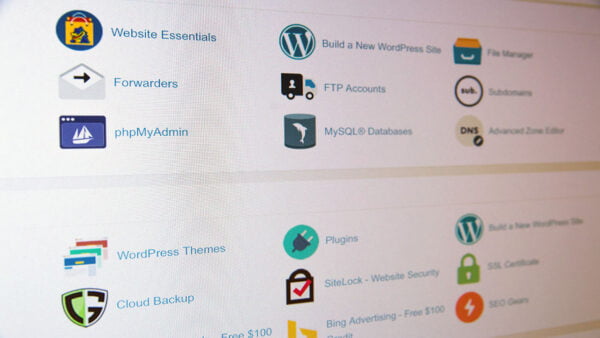
Pros and Cons of WordPress
WordPress is undeniably a powerful and versatile Content Management System (CMS), but like any other platform, it comes with its own set of advantages and disadvantages. Understanding these can help you make an informed decision about whether WordPress is the right choice for your website.
Pros of WordPress
1. User-Friendly Interface
- Advantage: WordPress boasts an intuitive and user-friendly interface that allows both beginners and experienced users to create and manage content with ease.
2. Extensive Plugin Library
- Advantage: With over 58,000 plugins, WordPress offers a wide range of functionalities, from SEO optimization to e-commerce integration, without the need for advanced coding skills.
3. Supportive Community
- Advantage: A dedicated and extensive community of users, developers, and enthusiasts provides abundant resources and assistance, making it easy to find answers to your questions and solve issues.
4. SEO-Friendly
- Advantage: WordPress is inherently optimized for search engines, generating clean, well-structured code. It also offers a range of SEO plugins to boost your website’s rankings.
5. Themes and Templates
- Advantage: WordPress offers a diverse collection of themes and templates that cater to various industries and styles, simplifying the design process and allowing for extensive customization.
6. Constant Updates
- Advantage: WordPress is committed to regular updates, enhancing security and performance. Staying updated is essential to benefit from the latest web technologies.
7. E-Commerce Capabilities
- Advantage: With plugins like WooCommerce, WordPress can transform your website into a fully functioning online store, providing inventory management, payment processing, and more.
Cons of WordPress
1. Security Concerns
- Drawback: WordPress’s popularity makes it a prime target for cyber threats. Regular security measures and vigilance are necessary to protect your site.
2. Scalability
- Drawback: While WordPress can handle small to medium-sized websites effortlessly, larger, high-traffic sites may require substantial hosting resources to maintain optimal performance.
3. Overwhelming Customization
- Drawback: The vast number of themes and plugins can be overwhelming, and selecting the right ones can be a daunting task, especially for beginners.
4. Maintenance Demands
- Drawback: Regular maintenance, including updates to themes, plugins, and the core system, is essential to ensure security and functionality. Neglecting this can lead to issues.
5. Learning Curve for Advanced Features
- Drawback: While WordPress is user-friendly, harnessing its advanced features may require a learning curve, particularly for those new to web development.
6. Hosting Costs
- Drawback: Depending on your website’s size and traffic, you may need to invest in premium hosting, which can add to the overall cost of running a WordPress site.
WordPress offers an array of advantages, including a user-friendly interface, a vast plugin library, and a supportive community. Its SEO-friendliness, themes, and e-commerce capabilities make it an appealing choice for many. However, it’s essential to be aware of its potential drawbacks, including security concerns, scalability issues, and the need for regular maintenance. By carefully weighing the pros and cons, you can determine whether WordPress aligns with your web development goals and needs.

How to Choose the Right CMS
Choosing the right Content Management System (CMS) is a crucial decision in your web development journey. The CMS you select will have a significant impact on your website’s functionality, scalability, and overall success. Here’s a step-by-step guide to help you make an informed choice:
1. Define Your Website’s Goals
Before diving into CMS options, clarify the primary goals of your website. Are you creating a personal blog, an e-commerce platform, a corporate site, or a portfolio? Understanding your website’s purpose will guide your CMS selection.
2. Assess Your Technical Skills
Consider your level of technical expertise. Are you a seasoned developer or a complete beginner? Some CMS platforms are more user-friendly and require minimal coding knowledge, while others are more developer-oriented. Choose a CMS that matches your skill level.
3. Content Type and Structure
Think about the type of content you’ll publish. Will it be mainly text, images, videos, or a combination of these? Additionally, consider how you want to structure your content, including categories, tags, and hierarchies.
4. Scalability
Consider your website’s potential for growth. If you anticipate substantial growth in the future, ensure the CMS you choose is scalable. Some CMS platforms are better equipped to handle expansion than others.
5. SEO Capabilities
If search engine optimization (SEO) is a priority, assess the CMS’s SEO features. Look for built-in SEO tools, clean code generation, and support for SEO plugins to optimize your content for search engines.
6. Customization Needs
Determine how much customization your website requires. Do you need complete design freedom and extensive functionality, or are you content with pre-designed templates and standard features?
7. Support and Updates
Consider the level of support and updates offered by the CMS. Regular updates are essential for security and performance. Check if the CMS has an active community and reliable customer support.
8. Budget
Evaluate your budget for website development and ongoing maintenance. Some CMS platforms are open-source and free, while others may require paid licenses, premium themes, and plugins.
9. Security
Security is paramount. Research the CMS’s security track record and available security features. Make sure you’re prepared to implement security measures and updates regularly.
10. User Reviews and Recommendations
Read user reviews, explore case studies, and seek recommendations from others who have experience with the CMS options you’re considering. Real-world experiences can offer valuable insights.
11. Test Before Committing
Many CMS platforms offer free trials or demos. Take advantage of these opportunities to test the platform, explore its features, and see if it aligns with your requirements.
12. Consider Future Migration
While choosing a CMS, also consider the possibility of future migration. Ensure that your content can be easily exported to another CMS if you ever decide to switch platforms.
13. Make a Pro and Con List
Based on your assessments and research, create a list of pros and cons for each CMS you’re considering. This will provide a clear visual representation of how each platform aligns with your needs and preferences.
14. Seek Professional Advice
If you’re uncertain or need specialized features, consider consulting with a web developer or digital marketing expert. Their expertise can be invaluable in making the right choice.
15. Make Your Decision
Finally, weigh all the factors, and make an informed decision. Remember that there’s no one-size-fits-all solution. The right CMS for you is the one that best meets your website’s goals, your technical skills, and your long-term plans.
Choosing a CMS is a significant step in your web development journey, and taking the time to assess your needs and explore your options will help you create a successful and sustainable online presence.

Web Design Tools: Site Builders
In the realm of web development, Content Management Systems (CMS) like WordPress often steal the spotlight. However, an alternative approach to website creation exists in the form of site builders. These tools cater to individuals who seek a more straightforward and hands-on approach to design and development.
What are Site Builders?
Site builders, also known as website builders, are user-friendly web design tools that allow you to create websites without the need for coding or technical expertise. These platforms offer a drag-and-drop interface, pre-designed templates, and an array of customization options, making the web design process accessible to beginners and professionals alike.
Advantages of Site Builders
1. User-Friendly
- Advantage: Site builders are renowned for their simplicity. They are designed for individuals who want to create a website quickly and easily, without the learning curve associated with traditional CMS platforms.
2. Speed of Development
- Advantage: Site builders enable you to design and launch your website in a matter of hours or days, compared to the potentially longer development time required by traditional CMSs.
3. Templates and Themes
- Advantage: Most site builders provide a selection of professionally designed templates and themes that you can customize to align with your brand and content. This saves time and effort in the design phase.
4. Hosting Included
- Advantage: Many site builders offer hosting as part of their packages, eliminating the need to seek external hosting services. This simplifies the setup process.
5. Ongoing Maintenance
- Advantage: Site builders handle maintenance tasks, including security updates and software upgrades, ensuring that your website remains in optimal condition.
Limitations of Site Builders
1. Limited Customization
- Drawback: While site builders offer a degree of customization, they may not provide the same level of design freedom as traditional CMS platforms. Advanced users seeking highly unique designs may find them limiting.
2. Scalability
- Drawback: Site builders may have limitations when it comes to scaling your website. As your site grows and requires advanced features, you may encounter constraints.
3. SEO Capabilities
- Drawback: SEO options in site builders can be more limited compared to traditional CMSs. You may have fewer optimization features and less control over technical SEO elements.
4. Proprietary Nature
- Drawback: Site builders are often proprietary, which means that if you decide to switch to another platform in the future, moving your content and design can be challenging.
Popular Site Builders
1. Wix
- Key Features: Wix is renowned for its ease of use, offering a vast library of templates and a flexible design editor. It’s ideal for small businesses, portfolios, and personal websites.
2. Squarespace
- Key Features: Squarespace is known for its stunning, artist-friendly templates. It’s perfect for creatives, such as photographers, artists, and designers.
3. Weebly
- Key Features: Weebly is a user-friendly site builder with e-commerce capabilities, making it a suitable choice for small online stores and personal blogs.
4. Shopify
- Key Features: Shopify is a specialized site builder tailored for e-commerce websites. It provides a range of features for online stores, including inventory management and payment processing.
How to Choose a Site Builder
When selecting a site builder, consider your website’s purpose, your design preferences, and your future growth plans. Review available templates, customization options, and pricing structures. Most site builders offer free trials, allowing you to explore their features before committing.
Site builders offer a simplified and efficient approach to website design, making them an excellent choice for individuals and small businesses looking to establish an online presence quickly. While they have limitations in terms of customization and scalability, their user-friendly nature and convenience make them a worthy consideration in the world of web design.
Conclusion
Selecting the right Content Management System (CMS) is a pivotal decision in your web development journey. Whether you choose the market leader, WordPress, or explore alternatives, understanding your goals, technical proficiency, and specific website needs is essential. Site builders offer a user-friendly, hands-on approach, while traditional CMSs provide advanced customization and scalability. Each option has its unique advantages and drawbacks, so make your decision wisely. Remember, there’s no one-size-fits-all solution; the right CMS for you is the one that aligns best with your web development goals and future aspirations.
Key Takeaways
- Know Your Website’s Goals: Define your website’s purpose and long-term goals before choosing a CMS.
- Consider Your Technical Skills: Choose a CMS that matches your technical expertise, whether you’re a beginner or an experienced developer.
- Think About Content and Scalability: Consider the type of content you’ll publish and the potential for growth.
- SEO and Customization: Assess the CMS’s SEO capabilities and customization options.
- Support, Security, and Budget: Evaluate the level of support, security, and ongoing maintenance requirements. Be mindful of your budget.
FAQs
1. What is the difference between a CMS and a site builder?
- CMS (Content Management System): A CMS is a more complex platform designed for managing and creating content. It offers greater customization and is suitable for various website types, including blogs, e-commerce, and corporate sites.
- Site Builder: A site builder is a user-friendly tool that simplifies website design. It provides pre-designed templates and a drag-and-drop interface, making it ideal for beginners and small businesses looking to create a website quickly.
2. Is WordPress the best CMS for everyone?
WordPress is a powerful and versatile CMS, but it may not be the best choice for everyone. Your specific needs, technical skills, and website goals should guide your decision. Consider alternatives if they align better with your requirements.
3. What are the advantages of using a site builder?
Site builders offer a straightforward, user-friendly approach to website design. They are quick to set up, include hosting, handle maintenance, and provide a range of professionally designed templates. This makes them ideal for individuals and small businesses looking for an easy and efficient way to create a website.
4. Are there limitations to using a site builder?
While site builders are easy to use, they may limit advanced customization, scalability, and SEO capabilities. Additionally, migrating content away from a proprietary site builder can be challenging.
5. How do I choose the right CMS or site builder for my website?
To choose the right CMS or site builder, consider your website’s goals, your technical skills, the type of content you’ll publish, scalability requirements, SEO needs, support, security, and budget. Research, test options, and make an informed decision based on these factors.
Photo by Unsplash











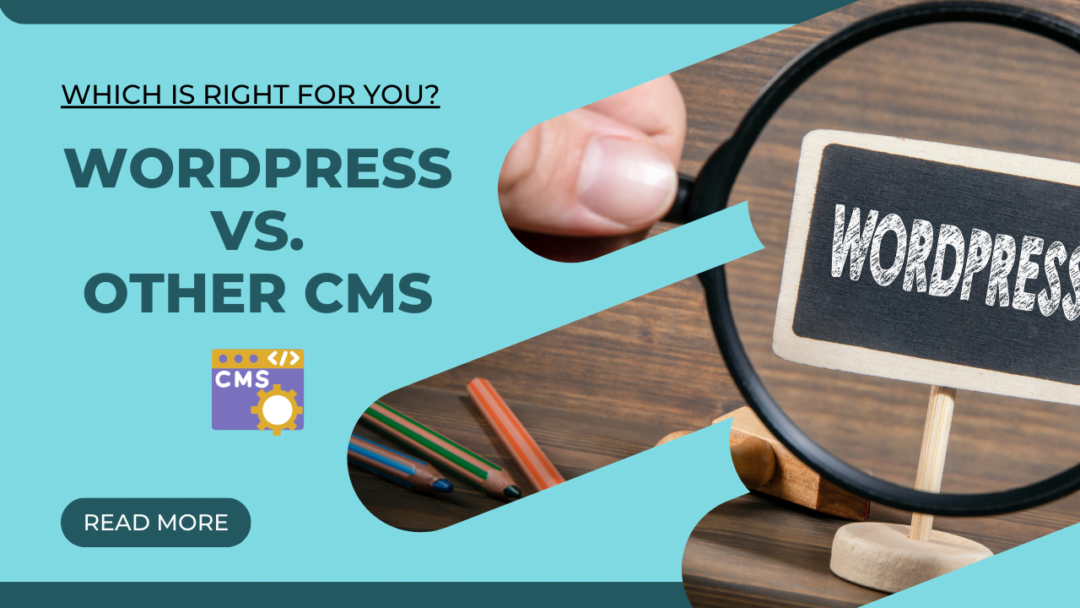

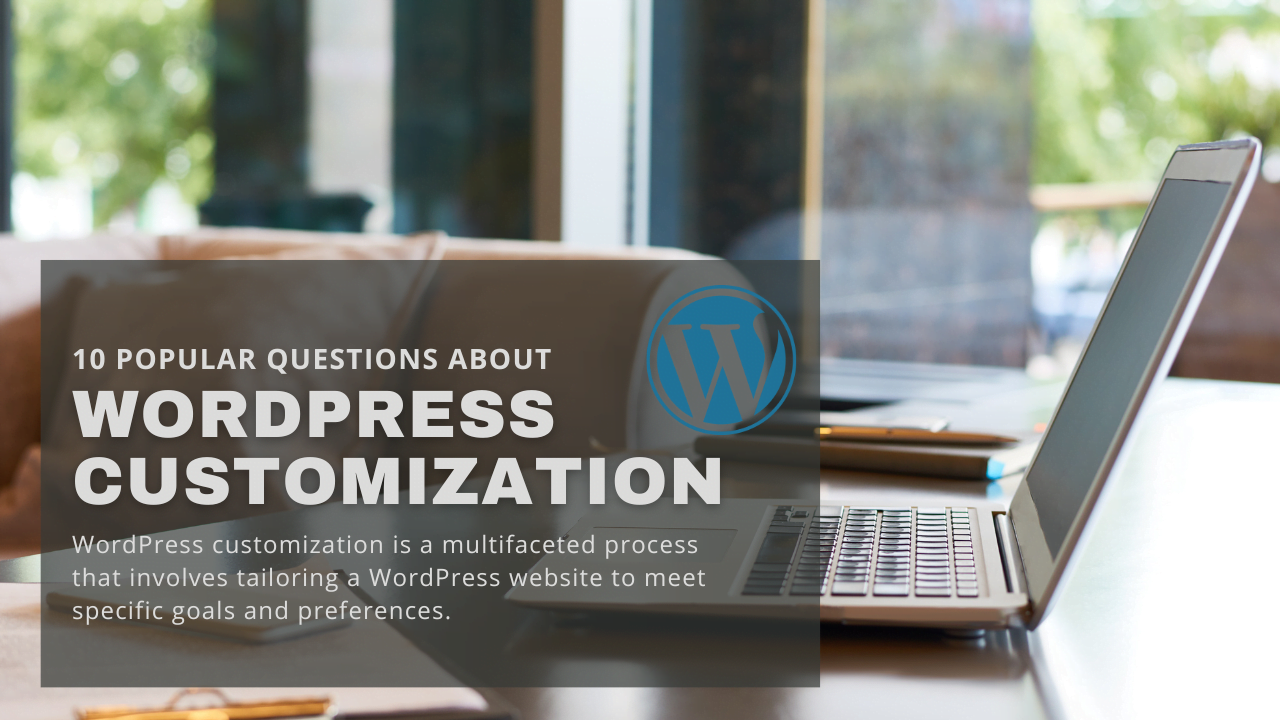
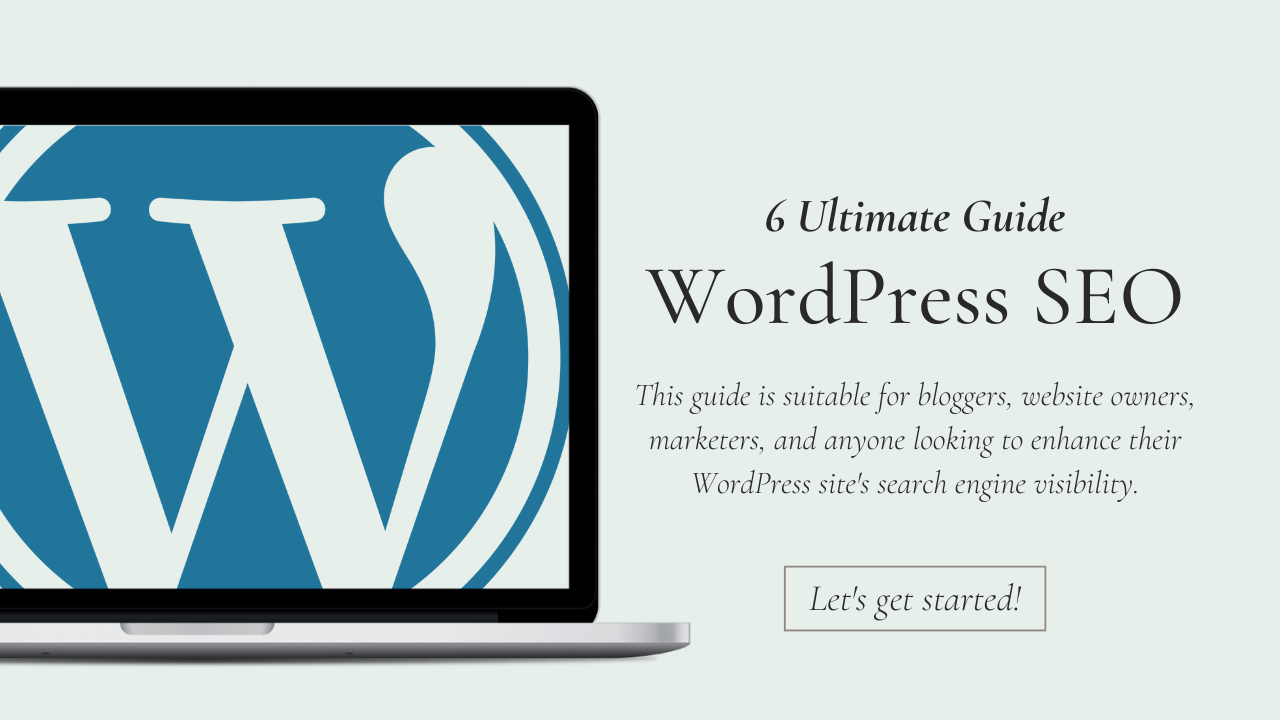


I don’t think the title of your article matches the content lol. Just kidding, mainly because I had some doubts after reading the article.
Your point of view caught my eye and was very interesting. Thanks. I have a question for you.
Thank you for your sharing. I am worried that I lack creative ideas. It is your article that makes me full of hope. Thank you. But, I have a question, can you help me?
Thanks for sharing. I read many of your blog posts, cool, your blog is very good.